As we get closer to National Road Trip Day on May 26th, we’re exploring what a road trip to see several national parks might look like. Visiting several new national parks is one of the best excuses to get on the road this summer. Unfortunately, campgrounds can book up well in advance. But there are some tips and tricks you should know if you are learning how to plan a national parks road trip.
Whether it is for this summer or sometime in the future, this guide will help you plan your trip to explore some of America’s most beautiful natural landscapes!
How do you plan a national park roadtrip?
Get a full national parks overview

Grand Canyon National Park. Photo: Sam Loyd/Unsplash
When I began planning my recent national parks road trip, I started by pulling up maps of all the national parks in the U.S. This gave me a solid idea of which parks might be within range, and I used the map to make a list of parks that I could hit on my ideal road trip route. Once you have a list of parks that interest you, begin working out the logistics: how much time you would need at each park to see what you want, the distance between locations, and more.
Set your timeline
Our road trips are typically going to be constrained by some sort of responsibilities we must either complete before we leave or that require our attention shortly after we return (or both!). So it’s helpful to understand just how long you can be away. Once you know this information, you determine what your route might look like and how many national parks you can visit.
From my experience, it is a healthy practice to allow yourself at least one day off at home once you return from your trip. This will allow you to get your affairs in order and clean up from your trip before you go back to work.
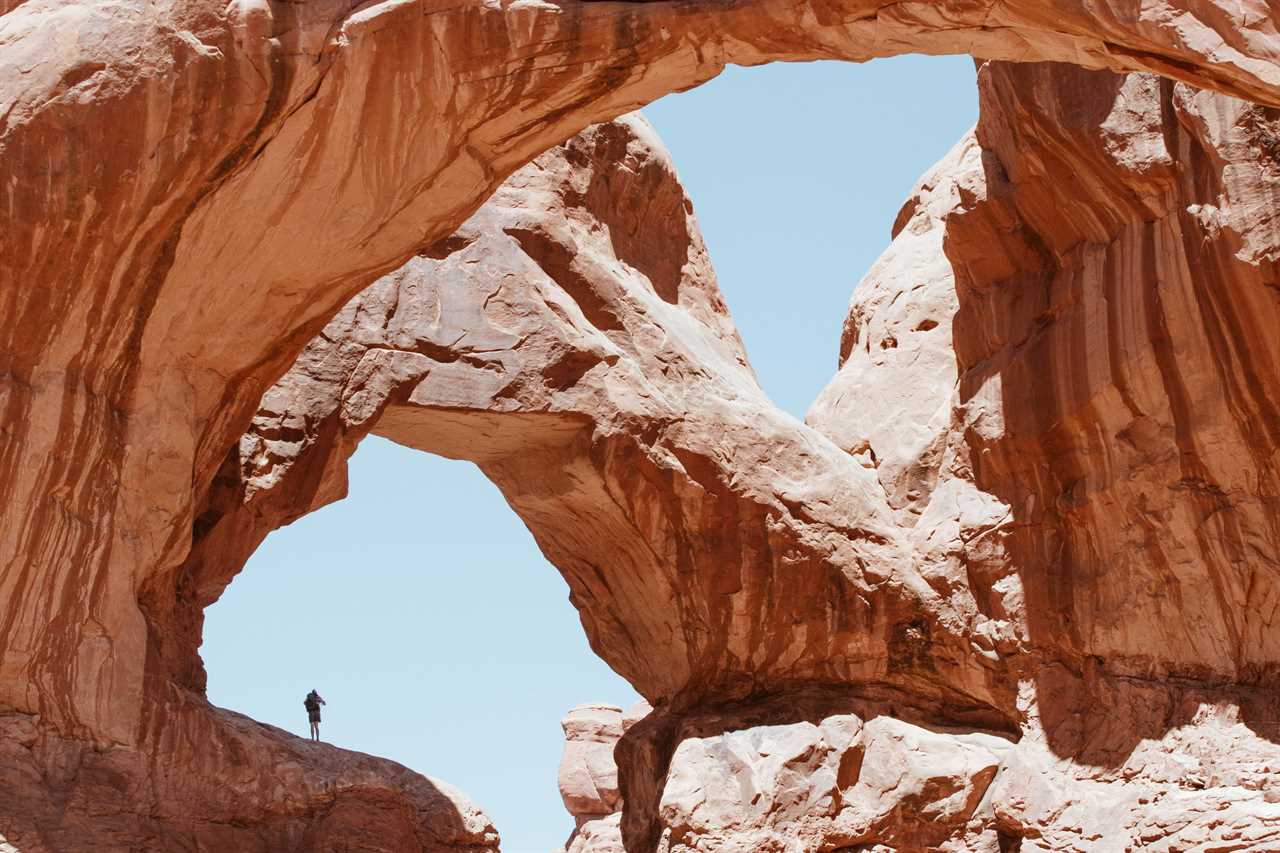
Arches National Park in Utah. Photo: Lauren Pandolfi
Similarly, it can sometimes be helpful to have the entire day off on the date before your departure date. This allows you to pack up and prepare with minimal stress and also allows some extra time if you need to run out for last-minute road trip supplies.
How do I create a road trip itinerary?
If you are planning a national parks road trip, I’m going to wager that you don’t mind driving. But you probably don’t want to spend 90% of your trip driving and only 10% actually hiking, biking, kayaking, or otherwise exploring your national park destinations.
So once you have your complete timeline outlined, break it down to understand how many days you will comfortably need to drive to, from, and in between the national parks you are trying to visit. Have a good idea of what a comfortable day of driving looks like to you. It shouldn’t be what you can do, it should be what’s most feasible.
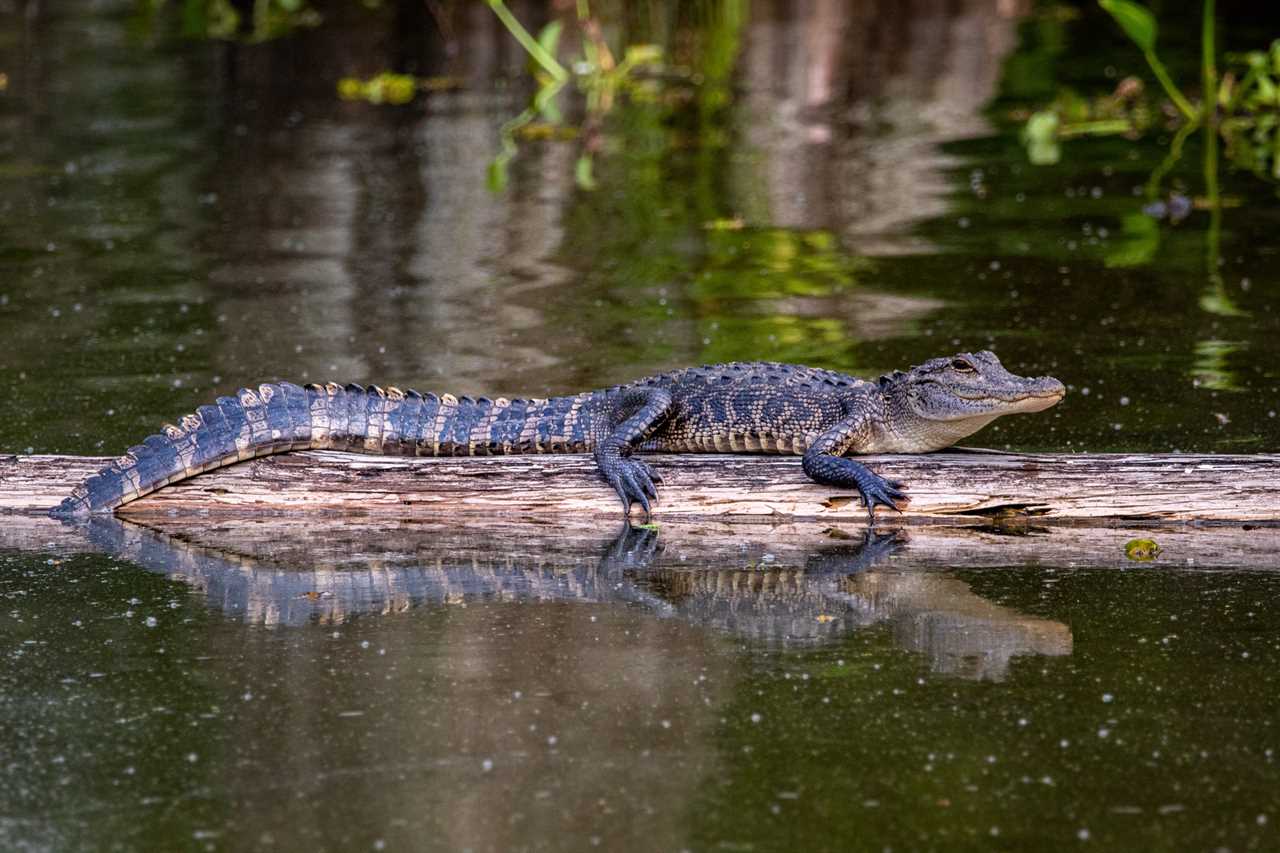
A gator relaxing in Everglades National Park. Photo: Joshua J. Cotten.
Which national park should I visit first?
First things first: follow your interest. While some national parks are more difficult to navigate in terms of terrain and difficulty of hiking and camping, most have at least some beginner-level experiences anyone can easily complete, even if that means camping outside the park or staying at a hotel, and driving in for a look around.
Consider the activity, budget, time available, time of year, and region you are interested in, and base your research on those requirements. For example, some national parks are easily doable within a one- or two-day trip, while others require more time to experience the park.
Consider Surrounding RV Parks
If you are really struggling to find available campsites for your chosen dates inside the park boundaries, consider Good Sam Parks in the area, and the campground database allows you to find nearby campgrounds based on your location.
Again, this is a better solution for folks’ camping setups that allow them to have a free vehicle for day adventures. But some national parks also offer shuttle services to and from nearby campgrounds and urban areas.
So you may be able to camp just outside of the park’s boundaries and still enjoy reliable public transportation for day adventures in and around the park.
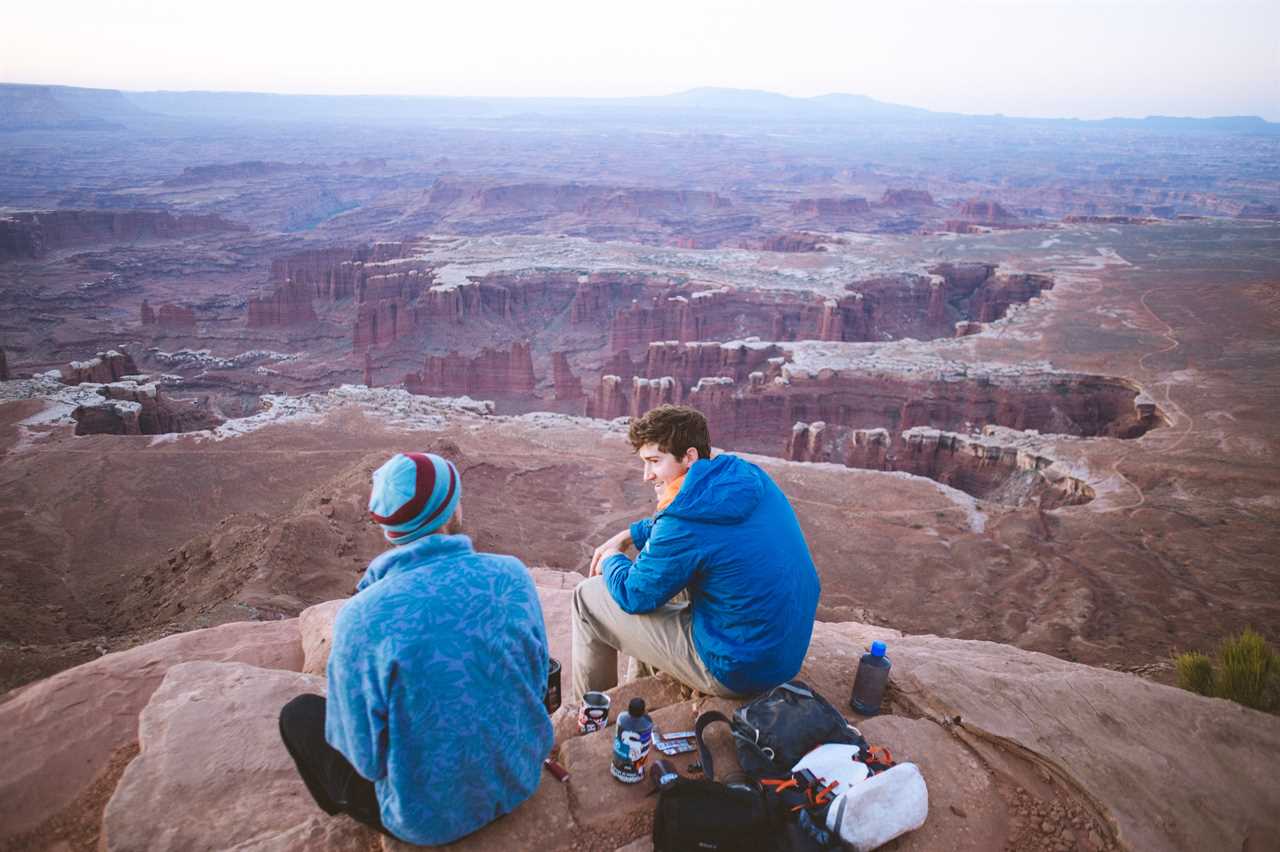
Relaxing and eating in Canyonlands National Park. Photo: Natalie Acheatel
Pack Your Own Food
The food prices at many national parks are similar to what you will find inside Disneyland or any other popular theme park. From personal experience, I have also never had a meal at a national park food vendor that was over-the-top incredible.
So you will save quite a bit of food if you pack everything you need for breakfasts, lunches, and dinners while you are on the road. Of course, there should always be a limited budget for a luxury meal out on at least one night of your trip.
That being said, you will need a quality cooler if you are going on an extended road trip without an RV or trailer with a built-in refrigerator.

Great Smoky Mountains National Park. Photo: Pixabay
Pick Up A Road Atlas
You can’t always rely on quality cellular service when you are visiting America’s wildest places. So you will need a backup plan to help you navigate if your chosen navigation app isn’t working once you are deep inside the park.
As a kid growing up taking RV road trips with my parents, we always had an up-to-date Rand McNally Road Atlas on board. Our parents encouraged us to take an active role in route planning and we really enjoyed highlighting our route so that we could look back on all of the wrong turns we took! To find a Good Sam Park, you can’t go wrong by checking out the Good Sam Campground & Coupon Guide.
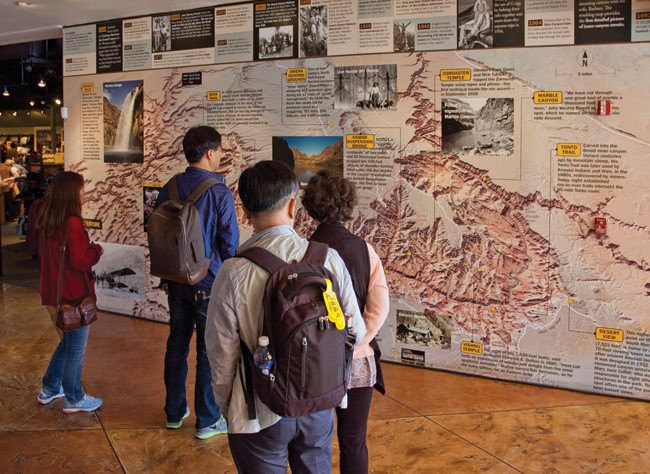
Grand Canyon National Park Visitor Center. Photo: NPS
Stop Into The Visitor’s Centers
While you will have to fight the crowds at some of them, the national park visitor’s centers really are the best places to get updated information about the park and its attractions. From tour times to trail maps, you will find everything you need to finalize the activity planning part of your road trip.
Also, take advantage of opportunities to ask questions of the rangers on staff there. Every visitor’s center I have been in nowadays has a dedicated booth with park rangers on staff to answer questions. This is where I have found the best information on off-the-beaten-path hikes, private shuttle services for river kayaking trips, and other helpful trip planning info.
Don’t Try to Do Too Much!
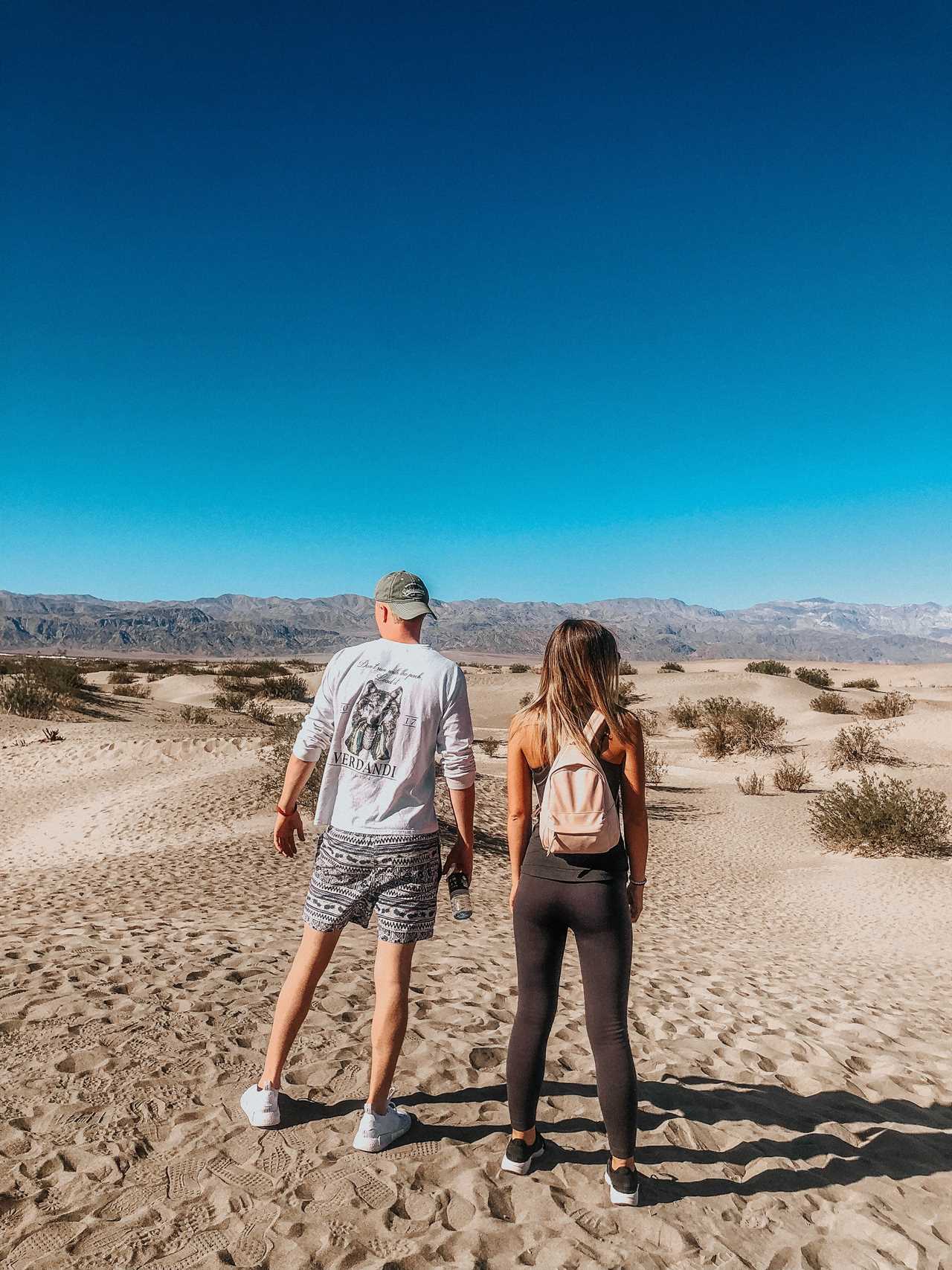
Death Valley National Park in California. Photo: Kirby S./Unsplash
Personally, I am struggling with this one a bit. You would think that planning a national parks road trip for four months would give me plenty of time to see everything I want to see along the way.
But you really could spend years road tripping around the United States and still probably not see absolutely everything that this country has to offer. If you try to see too much on a shorter road trip, you risk heading home feeling like you missed out on something.
So I would recommend identifying one major event, hike, or attraction to see and experience for each day you are in the park. This should leave you plenty of free time to actually enjoy your vacation and also see what other impromptu recommendations come your way!
Share your ideas!
If you could visit as many national parks as possible this summer, what would be your top three choices? We would love to hear which national parks are the highest on your priority list for the near future!
We also hope you found these tips for planning your national parks road trip useful. As RV travel becomes increasingly popular as a whole, the need to plan your visits to national parks well in advance becomes increasingly essential.
Don’t get stuck having to camp too far away from the park so that you don’t really get to enjoy it. Plan and utilize these strategies to make the most of your national parks road trip!
The post How To Plan A National Parks Road Trip appeared first on Good Sam Camping Blog.
By: Tucker Ballister
Title: How To Plan A National Parks Road Trip
Sourced From: blog.goodsam.com/planning-a-national-parks-trip/
Published Date: Tue, 02 May 2023 17:00:00 +0000
---------------------------------------------
 CampingSurvivalistHuntingFishingExploringHikingPrivacy PolicyTerms And Conditions
CampingSurvivalistHuntingFishingExploringHikingPrivacy PolicyTerms And Conditions
